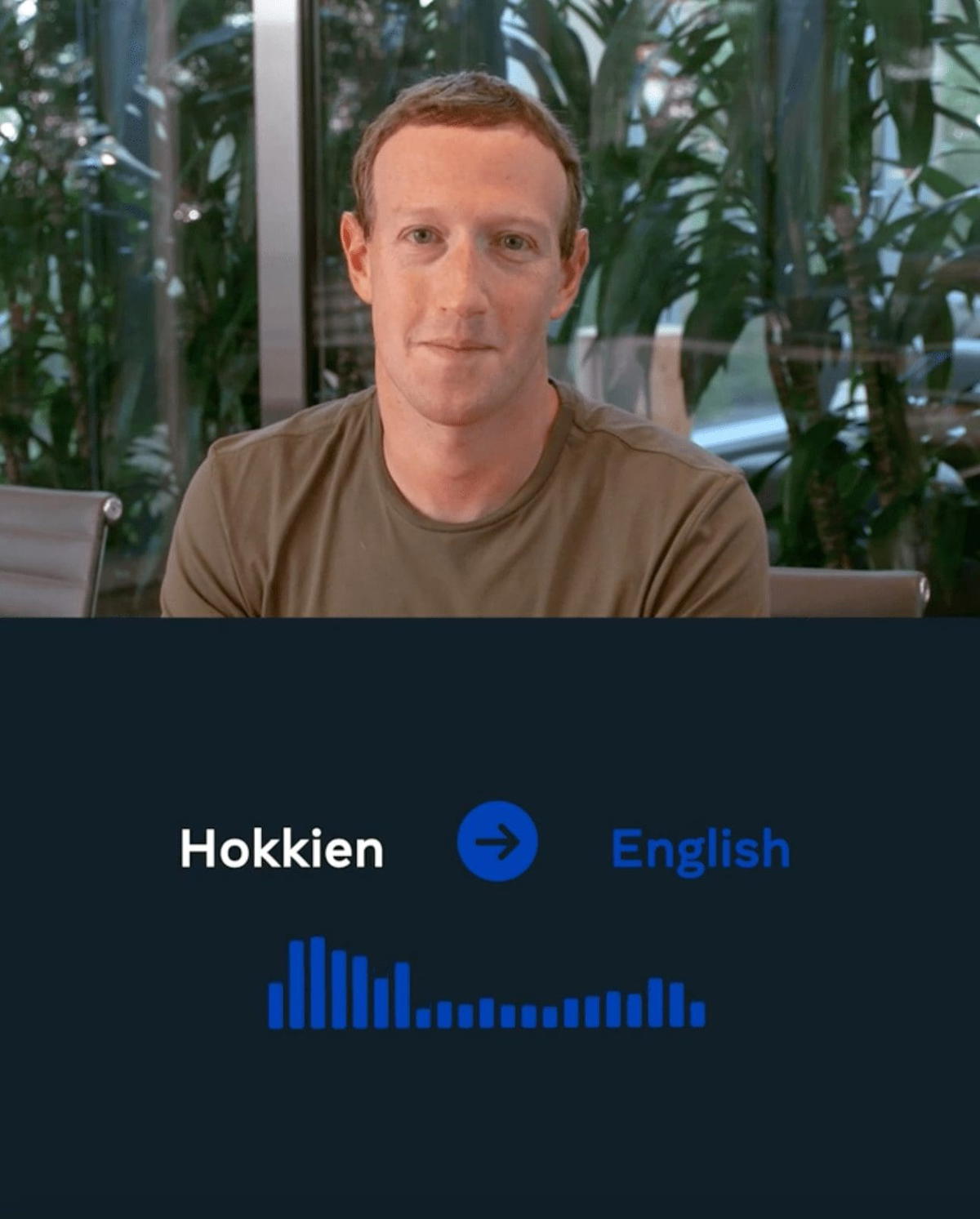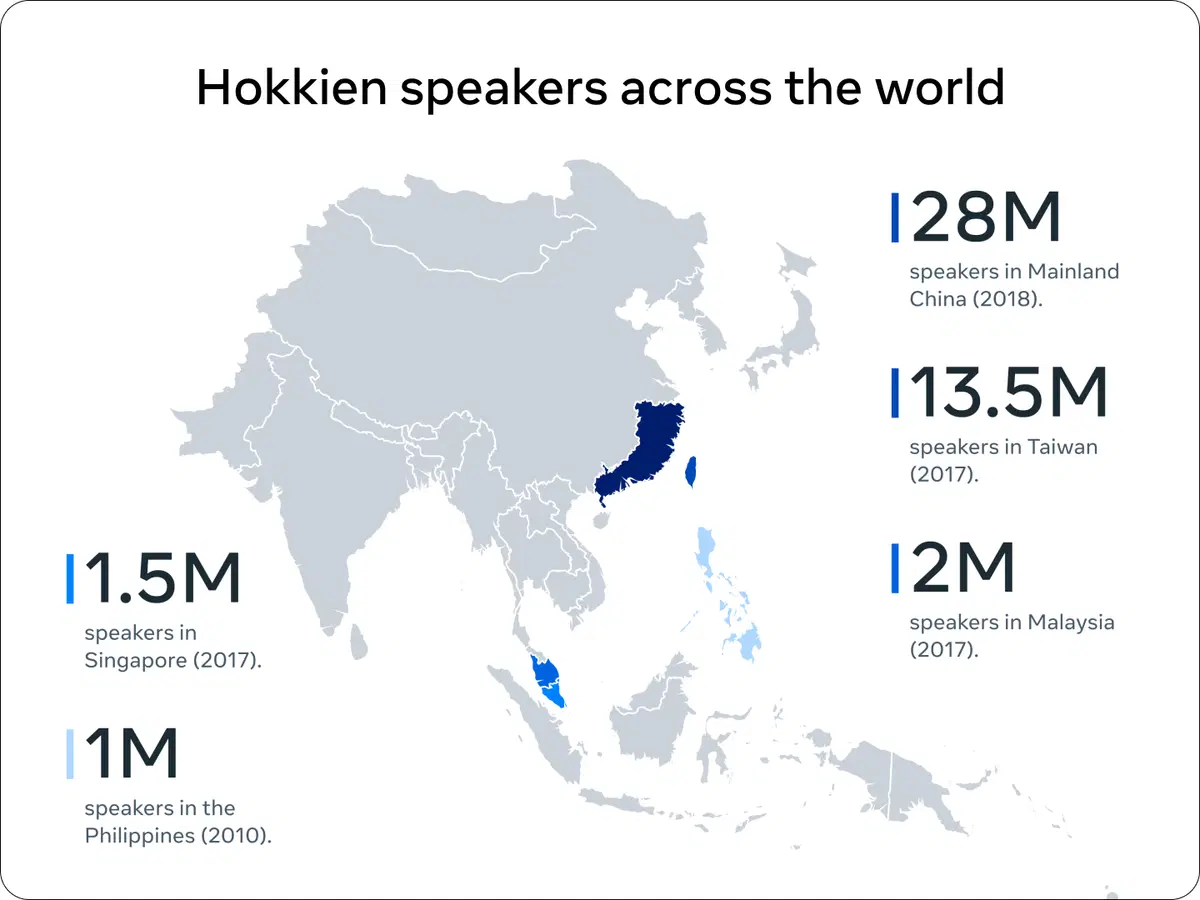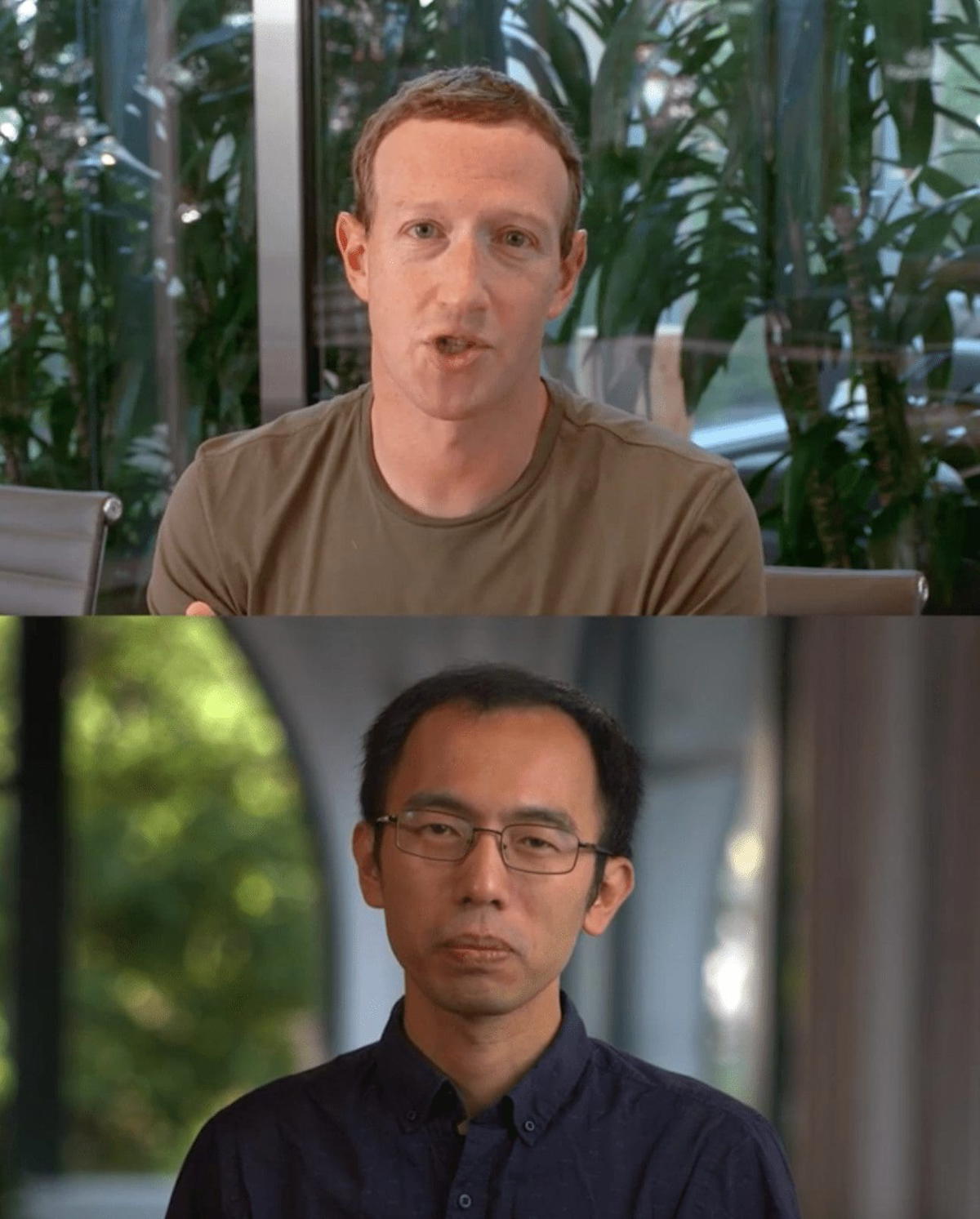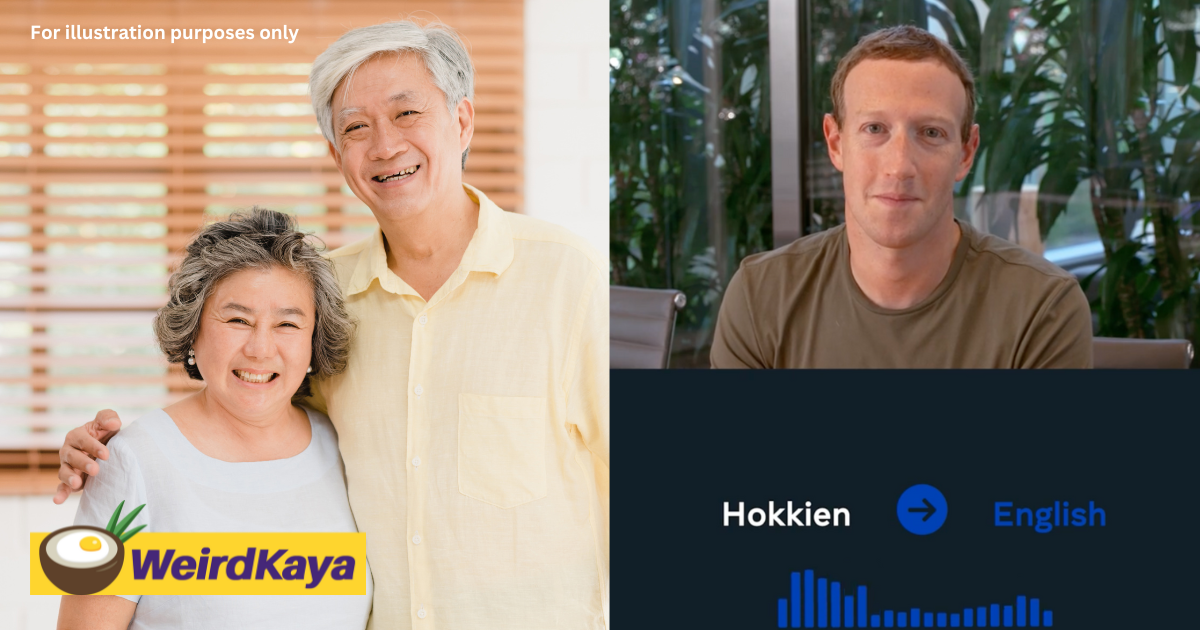Growing up, you may have heard your parents talking to your grandparents in a dialect you didn’t understand. Some might also find it hard to talk to their grandparents due to the language barrier.

And now, Meta, formerly known as Facebook has created its first artificial intelligence to translate Hokkien to English, a language that primarily spoken and not written.
In a PR release, the company said that the translation system is part of its Universal Speech Translator project, which is developing new AI methods that will eventually allow real-time speech-to-speech translation across many languages.
Mark Zuckerberg shares more details about English-Hokkien translator
In a Facebook post, Co-founder Mark Zuckerberg announced that the tech company has developed a speech-to-speech translation system for Hokkien.
Read also: Meta Accuses PDRM Of Running ‘Troll Farm’ In Support Of The Govt
He also did a demo with his Peng-Jen Chen, one of the researchers on the project to have a conversation with him in two different languages.
Mr Chen added that Hokkien is usually not taught in schools and is passed down orally from generation to generation.
Why is it so hard?
He shared that Hokkien is a language that’s used by millions of people around the world, including Singapore, Taiwan, Malaysia, and China.

However, it was a challenge to build such a translation system as there’s no standard writing system for the dialect.

To address this, Meta is open-sourcing their Hokkien translation models, evaluation datasets and research papers so that others can reproduce and build on their work.
We believe spoken communication can bring people together wherever they are located.
You can test the demo with your ah gong, ah ma now
The demo version is also available online, you can check it out here and test it with your grandparents to have a proper conversation with them.
It’s unrelated to the article but here’s our brand-new podcast – Talk Je Lah!


